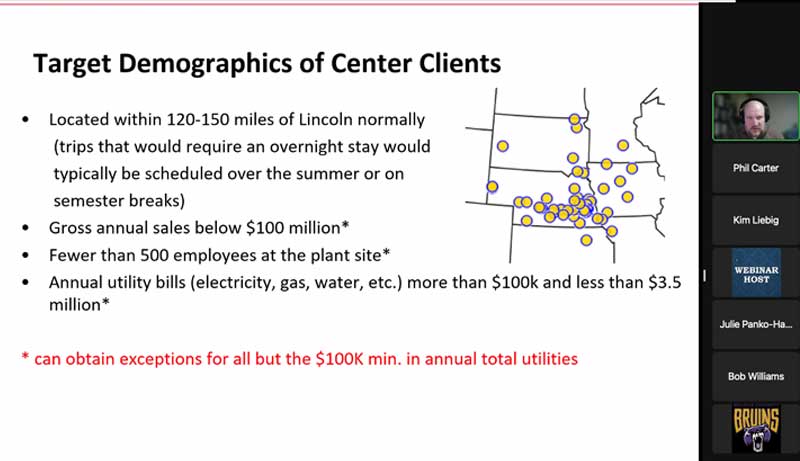
Energy efficiency can save companies thousands of dollars a year. That’s the message shared with more than 450 Nebraska middle and high school students by Sam Ghormley, energy engineer and a technical advisor for the Nebraska Industrial Assessment Center (NIAC), during the Nebraska Energy Workforce Consortium (NEWC) Careers in Energy Day on Thursday, Nov. 2.
Ghormley and Bob Williams, Ph.D., NIAC director and professor of mechanical and materials engineering, were on hand for the virtual event, which included presentations on cybersecurity, energy technologies and social media from companies such as OPPD, LES and Municipal Utilities District.
The UNL presentation featured Ghormley’s role with NIAC, an engineering program that’s been around for seven years, and how students play a large part in the center’s success, which offers no cost energy assessments to companies in a 500-mile radius to help them save money and become more efficient. Ghormley mentioned how NIAC celebrated its 90th visit this fall, covering a territory that largely consists of Nebraska and parts of South Dakota, Iowa, Minnesota, Kansas and Missouri.
An assessment involves three phases: preassessment work, assessment day and a post assessment evaluation, which is a phone call from a student team member who participated in the full day’s assessment.
“It’s fun to see which (recommendations) were implemented,” Ghormley said. “For our student project leaders, it’s almost like a guessing game to see which recommendations were successful.”
Ghormley says about 60 percent of all efficiency recommendations are implemented; better than the national average which hovers around 50 percent. Williams added that engineering students typically spend two years in the assessment program.
“And because they have that background with us,” Williams explained, “they get to pick and choose out of a handful of job opportunities offered to them before they graduate.”